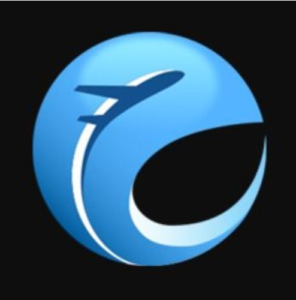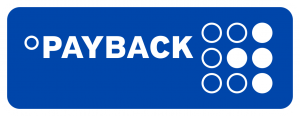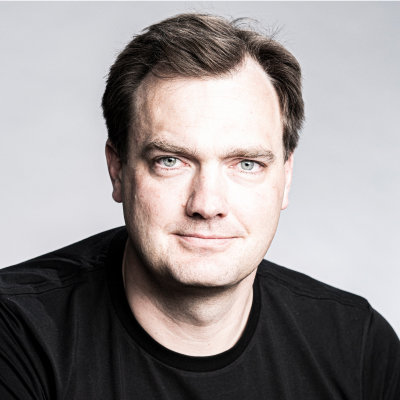
Mathias Hedlund hatte ich zu Gast auf der Bühne beim Spryker Summit Stockholm 2019. Er führt mit Etraveli eines der erfolgreichsten Unternehmen zum Thena Flugdatencontent und ist in dem Bereich mit ca. 3-4 Mrd. Dollar Umsatz ein unfassbar erfolgreicher Anbieter. Er betreibt explizit keine eigenen relevanten Flugsuchmaschinen, was erst einmal schwer zu verstehen ist. Im Podcast löst er auf, warum er das so strikt trennt und warum das auch ein Teil des Erfolgs ist. Aus seiner Sicht ist die Google Flugsuche in Europa noch sehr schwach, skyscanner.de aktuell weltweit führend und er erwartet diverse Konsolidierungsbewegungen. Ein für mich sehr spannender Blick hinter die Kulissen.
Die Kassenzone Interviews sind verfügbar bei: Soundcloud, iTunes, Spotify, Youtube, Facebook, Google Podcasts oder per RSS-Feed
 PODCAST & Interview Transkription – für alle Leser, die Audio & Video nicht so gerne konsumieren. Die Transkription wird gesponsert vom führenden Loyalty Anbieter PAYBACK – hier mehr erfahren und App herunterladen.
PODCAST & Interview Transkription – für alle Leser, die Audio & Video nicht so gerne konsumieren. Die Transkription wird gesponsert vom führenden Loyalty Anbieter PAYBACK – hier mehr erfahren und App herunterladen.
Flight data with Mathias Hedlund, CEO of Etraveli
Etraveli Group was one of the first companies to offer online flight bookings, now runs offices in 70 countries, and is one of only three online travel agencies (OTAs) in Europe which has managed to grow in the last year. Over a coffee on stage during the Spryker Summit 2019 in Stockholm, CEO Mathias Hedlund (whose previous employers include payment services provider Klarna) explains why it is vital to know who you are selling to – and when to take a step back.
This episode was sponsored by Newsletter2Go and has been transcribed for visitors to the site who would rather read the interview than listen to it. Our transcription sponsor is Germany’s leading loyalty scheme provider PAYBACK. Find out more about the company here.
“Europe is growing too slowly”
04:20
Alex: First, can you give us some insights about your history with Etraveli and what the business is actually about?
Mathias: Absolutely! Primarily, we are an OTA and, as such, we sell around 40,000 airline tickets per day. That makes us the #2 in Europe and by far the fastest growing. However, our business model is that of an intermediary. Most consumers today go to meta-search channels, price comparison sites – in Sweden, flygresor.se and momondo and, globally, primarily Skyscanner and Kayak – to find cheaper tickets, before they come to an OTA. OTAs get their air content from global distribution systems (GDSs), namely from Amadeus and Sabre, but also increasingly direct from airlines and through other content aggregators. We are the transaction engine in between, and our whole company is geared towards surviving in this very low-margin, price-competitive, totally transparent world of metasearch engines and price comparison sites.
In 2014/15, we implemented a total strategy shift. That is also when I came to be CEO on the company. Whereas most people before had gone directly to the OTA or searched using Google etc., at this time, they started going through the meta-search engines first. And what you need to know is that we earned €80 per order when people came directly, but only €10 per order when they went to meta-search engines.
Currently, we sell around €4 billion of airline tickets annually and, all things told, that adds up to a little bit more than €60 million in profit, which accounts for a 25% profit margin. So it is a very high-margin business for us: in the last couple of years, we had a CAGR of around 30 percent. And the reason why we are more successful is that we compete against travel agencies trying go technical, whereas we are tech, but happen to be working with travel.
09:45
Alex: Let’s approach your model from various different directions, starting with the customer. How do you get me, the customer, onto your website instead of Google Flights, for example?
Mathias: First I think you need to know that we own flygresor.se, the leading meta-search engine here in Sweden. We acquired it in 2014 and did that in order to learn how to cooperate as best as possible with other meta-search engines out there like Skyscanner and Kayak. So out of the €60+ million generated across all of these brands, only €2 million are accounted for by flygresor.se, while the rest is created by OTAs.
And to answer your question: it is actually Skyscanner and Kayak who are competing against Google Flights or OTA Direct or airline.com, but within that environment, we have a big market share in many markets – and are growing to win additional share. We are succeeding here because we are cheaper. When you go to a meta-search site, nine out of ten will pick the lowest price flight, not the lowest priced itinerary – as you might want to take a direct flight or you prefer a certain airline or whatever. Once you’ve made that choice, nine out of ten pick based on the price.
So, basically, the reason why we have many brands is because this way, we can occupy more shelf space and are able to have different strategies in pricing and content between different brands. There is no such thing as brand loyalty to us. So this is a very clear strategic choice.
(According to Mathias, it is due to their advanced technology and operational excellence that Etraveli is able to provide metasearch engines with better prices than airlines. In some markets, like the Netherlands, he adds by way of a caveat, there are strong brands such as KLM which do not need support from Etraveli, yet in Sweden, Etraveli can help KLM expand its reach. And in that case, KLM pays Etraveli for the distribution service.)
14:25
Alex: A lot of OTAs are struggling with decreasing revenue, even disappearing from the market – which leads me inevitably to a key question: what differentiates you from the struggling OTAs?
Mathias: I think it is many things, but let’s start with strategy: we are fully focused on flights. All of our efforts are focused on that one category, while many other travel agencies try to do flights, hotels, car rentals etc. We, on the other hand, looked at the market and realized that we cannot compete with booking.com. In the hotel category, they are way better than we will ever be. And for car rentals – rentalcars.com or cartrawler.com – existing providers are much better than we will ever become, so we cooperate with them instead.
A second thing is our execution: we are much faster than our competitors. We are extremely fast in making decisions and implementing. If a change is happening within the industry, we probably react to it on the same day, where it can take competitors a week or, in some cases, even months. Often, that is due to technical abilities, but it can also just be an issue of how the company operates. I would say that, personally, as CEO, I take far fewer decisions than the typical CEO of a company of this size, because the distribution of decisions is based on a very clear strategy and culture.
Alex: Since execution plays such an important role, let’s continue with that and discuss your execution pattern. Are you not afraid of Kayak, Google Flights, or others going in a little deeper and focussing on virtual integration of the airlines or doing exclusive deals with them? I’m thinking of them creating a shelf to which you would not be granted access anymore, preventing you from generating revenue.
Mathias: That is a very good question, and all of this is indeed happening right now – and yet we are still growing. Nevertheless, it is, of course, the ambition of everyone else in the market to tap into that pool if for no other reason than that we have higher margins than our competitors.
So, to answer your question: yes, right now I foresee pressure from our traffic sources, but I also see new traffic sources similar to Google comping up in the next two to five years. However, they will be extremely product-oriented rather than commerce-oriented, and there will be a lot of leeway for us to create. I think the key aspect for us here is really that we need to be wherever the consumers are, because we are not a brand: we are about air content at the lowest price – and about the very hard work that is necessary to create that.
19:00
Alex: When you talk about “content”, most of us will think of text and pictures, but the content you are talking about is different, right?
Mathias: Yes, I am sorry if I am not explaining that properly. When I say “air content”, I mean the ability to find the most relevant itinerary for any given search at any given time. That changes all the time, though, and luckily, the whole thing with air content and flights is so complex that there is no single player around that can accumulate everything. So, it is really about your ability to bring in all these different aggregating sources and direct connections with airlines.
(With air content and the flights business generally being so complex, especially in Europe, with all its different nations and carriers, Mathias rates Google Flights as being too simple. “It is rather big in the US, but only just starting to get traction in the UK and Germany”. That might be the reason why, a few months ago, Google Flights called Etraveli and asked for their help. “Most people would be afraid of Goole Flights, while I see it as just another distribution channel, and we are going to help them out.”)
20:45
Alex: What I have always expected when using Google Flights was that they will be able to show me every single connection on any given day from, let’s say, Hamburg to Amsterdam. Now you are you telling me that they’re not doing that since they only have, like, fifty percent of the content …
Mathias: Not even that.
Alex: Not even that!
Mathias: Not even that.
Alex: And so what you are saying is that you can get them to 80 to 90 percent of the content plus better fares?
Mathias: Yes.
Alex: They are not able to get there by themselves?
Mathias: No.
Alex: Is that because you have a much more direct access to data as well as much better aggregated data?
Mathias: Yes, and we because combine many more content sources. Moreover, it’s not just connecting to these sources, it is also what we do with them and how we run our operations.
Alex: Let us talk about Kayak for a minute. You have said that Kayak is one of your main distribution channels. Can you tell me what percentage of their content is provided by your services?
Mathias: That varies significantly between the markets. In Sweden, we have a 40 percent market share and, in some months, it is close to 50 percent. In the UK, we hold a 10 percent market share and in France it is the same, while we have a good chunk of the market in Japan and South Korea, too.
Alex: What meta-search engine would you recommend for a search today, if not Google Flights, at least not as long as you have not integrated your data?
Mathias: Right now, I would probably use Skyscanner – if I might answer the question globally.
Alex: Is that so? Even for the European markets?
Mathias: Yes, since Skyscanner is based in Edinburgh.
25:25
Alex: Crazy! I have to confess that I’m somewhat surprised as yours is the first success story of an intermediary in the years between 2015 and 2019 – and an impressive one, as well. But I would like to change the approach here. Let’s forget the customer for minute and imagine that you are the CEO of an airline. What would your advice be for an airline CEO? What could be their next step in terms of emancipating themselves from Google Flights?
Mathias: I think most airlines need to get away from the prestige that has been previously associated with airlines. As passengers, our experience of air travel is not like in Catch Me If You Can, where Leonardo DiCaprio walks around in his pilot uniform accompanied by a flock of stewardesses and everything is drenched in those lovely 1950s pastel shades. When you’re sat in a Ryanair plane, you don’t feel that vibe, do you? Yet the executives still feel like they run that kind of glamorous business. And that is impeding them.
If I were an airline CEO – although I would not choose to be one; I actually prefer the intermediary role – I would definitely invest much more in tech in order to get less dependent on tech players like ourselves and to be able to take more decisions on my own. Frankly, airlines pay us too much for certain parts of traffic and filling their seats and they should pay us more for others, but they cannot steer it well. So I would focus much more on tech, which would in turn make me able to improve my margins and volumes.
(Alex and Mathias elaborate on Ryanair and how hard the company is to negotiate with because it wants to stick to their low-coast approach come hell or high-water. In this very tough industry, an airline CEO has to put up all the costs upfront because they have to invest in planes first – and then they have to fill them, regardless of economic dynamics. “Therefore, even a company like Ryanair with its branding and positioning actually benefits from getting some distribution”.)
30:30
Alex: So, if I understand you correctly, if you were a CEO of a company like the German meta-search engine Check24 for example, you would reduce your activities to the categories you could control and ideally to only one category, is that correct?
Mathias: Well, I would necessarily not be that determined in my strategy. I would need to see where they are right now and where they make their money and so on, so that might not be the right approach. My general take is that everything is becoming more global. If you are in a very transparent business, as we are, you really have to become the best in what you are doing; and if you feel that you cannot become the best, then you better not do it – you’d better cooperate instead. That is what I mean. And in our case, we were good in flights, but we could be much better if we invested all of our efforts in this category and cooperated with regard to the rest.
31:20
Alex: There are so many more game theory questions coming to mind, but we are running out of time by now. However, I have one more question: of those 600 people you employ, how are they divided to your departments? How many developers do you have?
Mathias: Actually, I do not think I have one SEO guy in the whole company. Maybe we should have one, but we haven’t had the focus on that one yet. We probably have one or two on SEM, while we have 30 that don’t do anything else other than optimise the pricing in the meta-search engines (and that is on top of everything being driven by machine-learning!). So, of those 600, Tech counts approximately 130.
Alex: Are they based in your offices in Stockholm?
Mathias: They are in Gothenburg, actually, and Athens. In Product, there are another 70 to 80 employees, and we have quite a big finance department handling 70 markets: FX is huge for us, cash management … And then Operations, of course, our customer service.
Alex: What is the next step in the game for you as a company?
Mathias: We are owned by private equity and I think that has been one reason for our success over the last couple of years, too. Actually, we sold twice. We were owned by ProSieben and Sat.1 for a while, between 2015 and 2017. Before that, it was a Swedish private equity firm and before that a Norwegian private equity investor, and now it is CVC Capital Partners, the largest private equity fund in Europe. So, of course we are going to sell again. That’s the whole mandate, right? It is about making this even more of a tech company in order to act even more globally. We are still too European, and Europe is growing too slowly to defend this 30 percent growth moving forward, which is why we are investing a lot outside Europe right now.
(On that note, and since they have to clear the podium, Alex invites Mathias to another coffee off-stage.)




